
Schaeffler Increases Vitesco Offer Price to €94 Per Share
Schaeffler AG increased its offer for Vitesco Technologies Group AG to €94 per share, bringing the value of
2023-11-27 15:54
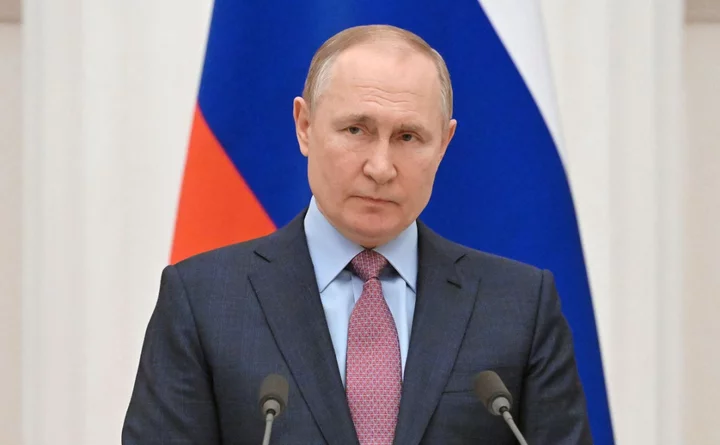
Putin unveils Russia’s new AI strategy to rival Western advances in artificial intelligence
Vladimir Putin has unveiled what he calls Russia’s new strategy to counter Western dominance of the field of artifical intelligence, claiming that new AI models “cancel Russian culture”. The president addressed an AI conference in Moscow on Friday where he said Russian investment in AI development was being increased across all sectors. Citing the example of Gazprom Neft, Mr Putin said one of Russia’s largest oil producers was using AI to slash the cost of oil well development and to address complicated logistics safety issues. “I hope we will be more active in this area. When I say ‘we,’ I am referring not only to the government but also to the regions and industries, and individual plants,” Mr Putin said. The Russian leader said the country would intensify its research into the domains of generative AI and large language models which currently lag behind the leading Western-developed tools like OpenAI’s ChatGPT and Google’s Bard chatbots. Speaking about such AI models, he said their full potential had only started to emerge in the past year, while he criticsed “Western search engines” and generative AI models, calling them “very selective and biased”. “They do not take into account and sometimes simply ignore and cancel Russian culture. In simple terms, the machine is given some creative assignment and performs it using only the English language database,” he said. “Thus, the algorithm may tell the machine that Russia, our culture, science, music and literature simply do not exist. They are cancelled in the digital space, as it were,” the Russian president said at the conference. AI created according to “Western standards”, he said, may emerge as a “kind of xenophobe”, he said. “Our domestic models of artificial intelligence must reflect the entire wealth and diversity of world culture, the heritage, knowledge, and wisdom of all civilisations,” he said. English speaking countries currently dominate AI development, with Stanford’s Institute for Human-Centered Artificial Intelligence (HAI) claiming the US and UK were further ahead in the technology than the rest of the world. The Russian president said that the “monopolistic dominance” of the technology was “unacceptable, dangerous and inadmissible”. “Our innovations should rest on our traditional values, the wealth and beauty of the Russian language and languages of other peoples in Russia,” Mr Putin added. To achieve such development, he called for the scaling up pf Russia’s supercomputing power and to improve its top-level AI education. Read More AI breakthrough could help us build solar panels out of ‘miracle material’ OpenAI co-founder Sam Altman ousted as CEO YouTube reveals bizarre AI music experiments AI-generated faces are starting to look more real than actual ones Breakthrough ‘safe’ liquid fuel cannot start accidental fires, scientists claim Meta sued over ‘open secret’ of ‘pursuing,’ signing up millions of underage users
2023-11-27 15:47

Xi to Make His First Visit to Shanghai Since 2021, SCMP says
Chinese President Xi Jinping will visit Shanghai on Tuesday in his first trip to the financial hub since
2023-11-27 14:57
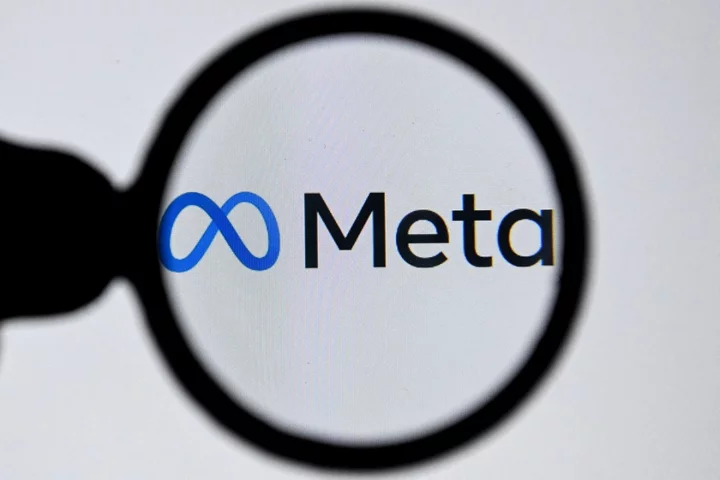
Meta sued over ‘open secret’ of ‘pursuing’ and signing up millions of underage users
Facebook‘s parent company Meta disabled only a small fraction of the over one million reports it received of underage users on Instagram since early 2019, a lawsuit filed by 33 US states reportedly said. The newly unsealed legal complaint accused the tech giant of carrying an “open secret” that it had millions of users under the age of 13, and that Instagram “routinely continued to collect” their personal information such as location without parental permission. The complaint stated that within the company, Meta’s actual knowledge that millions of Instagram users were under the age of 13 was an “open secret” that was routinely documented, rigorously analyzed and confirmed, and zealously protected from disclosure to the public, according to a New York Times report. Last month, attorneys general from 33 states, including New York’s AG Letitia James, filed a lawsuit against Meta alleging that the tech giant designed harmful features contributing to the country’s youth mental health crisis. The lawsuit alleged Meta created addictive and “psychologically manipulative” features targeting young people while assuring the public falsely that the platform was safe to use. “Meta has profited from children’s pain by intentionally designing its platforms with manipulative features that make children addicted to their platforms while lowering their self-esteem,” Ms James said. Meta’s spokesperson responded to the lawsuit, saying that the company was committed to providing teens with “safe, positive experiences online,” and that it had already introduced “over 30 tools to support teens and their families” such as age verification and preventing content promoting harmful behaviours. “We’re disappointed that instead of working productively with companies across the industry to create clear, age-appropriate standards for the many apps teens use, the attorneys general have chosen this path,” the spokesperson added. However, a significant portion of the evidence provided by the states was obscured from public view via redactions in the initial filing. The new unsealed complaint filed last week provided fresh insights from the lawsuit, including the accusation that Instagram “coveted and pursued” underage users for years and that Meta “continually failed” to make effective age-checking systems a priority. The lawsuit reportedly argued that Meta chose not to build effective systems to detect and exclude underage teen users, viewing them as a crucial next generation demographic it needed to capture. It also accused the tech giant of “automatically” ignoring some reports of under 13 users and allowing them to continue using the platform while knowing about such cases via the company’s internal reporting channels. The company responded that the now publicly revealed complaint “mischaracterizes our work using selective quotes and cherry-picked documents.” It said verifying the ages of its users was a “complex” challenge especially with younger people who likely do not have IDs or licenses. Meta recently said it supports federal legislation requiring app stores to get parents’ approval whenever their teens under 16 download apps. “With this solution, when a teen wants to download an app, app stores would be required to notify their parents, much like when parents are notified if their teen attempts to make a purchase,” the company said. “Parents can decide if they want to approve the download. They can also verify the age of their teen when setting up their phone, negating the need for everyone to verify their age multiple times across multiple apps,” it said. The tech giant holds that the best solution to support young people is a “simple, industry-wide solution” where all apps are held to the same standard. “By verifying a teen’s age on the app store, individual apps would not be required to collect potentially sensitive identifying information,” Meta recently said. Read More Russia places Meta spokesperson on wanted list Meta to allow users to delete Threads accounts without losing Instagram Nasa has received a signal from 10 million miles away Nasa has received a signal from 10 million miles away Elon Musk set to meet Netanyahu and hostage families in Israel Elon Musk weighs in on Dublin riots claiming country’s PM ‘hates the Irish people’
2023-11-27 13:51

North Korea Brings Backs Weapons and Troops to Shut Border Posts
North Korea appears to have deployed soldiers and weapons to guard posts near the border that were shut
2023-11-27 13:48
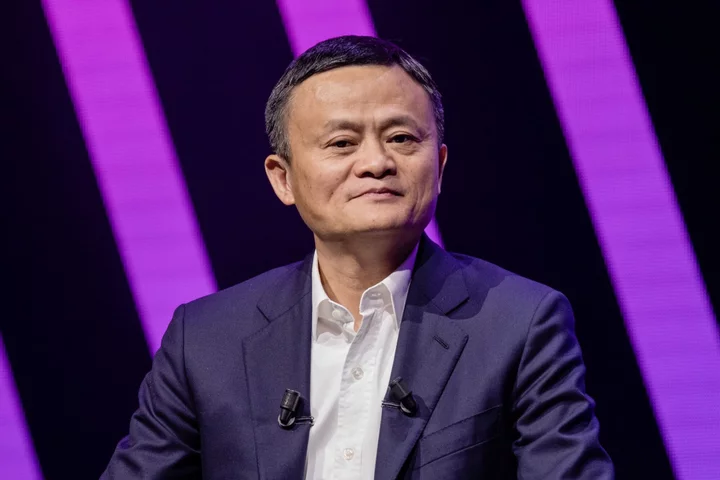
Jack Ma Gets Back Into Business With ‘Ma’s Kitchen Food’
Jack Ma sparked speculation about his next endeavors after the billionaire seeded a small company to process and
2023-11-27 12:49
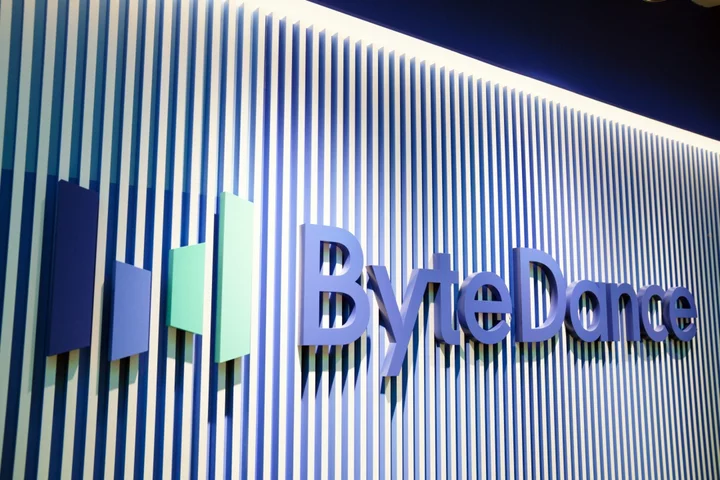
ByteDance Is Said to Shut Main Gaming Arm in Business Retreat
ByteDance Ltd. plans to wind down its main gaming brand Nuverse in a major withdrawal from the sector,
2023-11-27 10:19
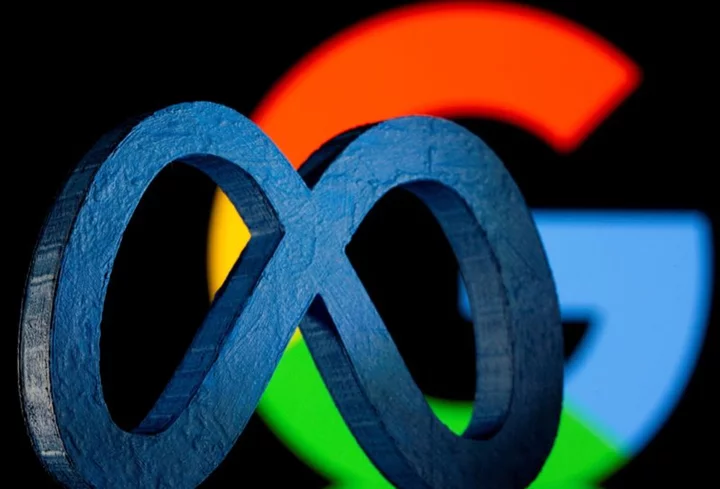
Australian regulator calls for new competition laws for digital platforms
(Reuters) -Australia's competition watchdog said on Monday new competition laws were required in response to the rapid expansion of digital
2023-11-27 09:26

Sunak Says He Abhors Antisemitism From Anyone, Including Musk
Rishi Sunak said he condemns antisemitism “in all its forms,” in a careful criticism of Elon Musk that
2023-11-27 06:54
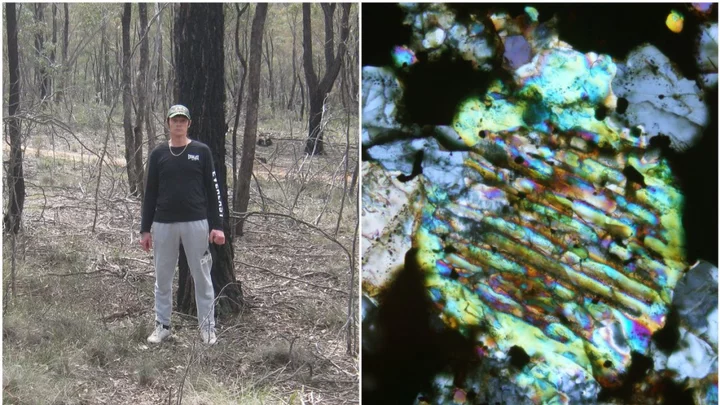
Metal detectorist finds mystery rock that turns out to be worth more than gold
Metal detecting can be a pretty thankless task, with most enthusiasts lucky if they find a couple of quid or an old belt buckle. But for one man in Australia, the experience was out of this world. David Hole was out digging for gold in Maryborough Regional Park, near Melbourne, back in 2015 when his trusty detector alerted him to a strange, red-brown rock embedded in some yellow clay. Hole took the mysterious boulder home with him and did his utmost to crack it open, using a rock saw, a sledgehammer, a drill, and even dousing it in acid, according to Science Alert. And yet, nothing left so much as a dent. Admitting defeat years later, in 2018, Hole took his find to the Melbourne Museum, hoping someone there could explain its impenetrability; convinced it contained a golden nugget. However, the discovery was far more significant than a precious metal: it was a 4.6 billion-year-old glimpse at the birth of our solar system – a rare meteorite that had crashed down to Earth. The museum’s geologists, Dermot Henry and Bill Birch, said they grew excited as soon as Hole pulled the enigmatic rock from his rucksack. Speaking to the Sydney Morning Herald back in 2019, Henry recalled: "It had this sculpted, dimpled look to it. "That's formed when they come through the atmosphere, they are melting on the outside, and the atmosphere sculpts them." Meanwhile, Birch told the paper he knew the specimen was special as soon as he held it. “If you saw a rock on earth like this, and you picked it up, it shouldn’t be that heavy,” he said. Testing soon confirmed their suspicions, as well as the composition of this extraordinary chunk of history. In July 2019, the two colleagues published a scientific paper describing the meteorite, which they christened “Maryborough”, after the area where it was found. The space rock, which measures 38.5cm by 14.5cm by 14.5cm, weighs a staggering 17 kg, and after using a diamond saw to slice through it, the experts discovered that it is what is known as an H5 ordinary chondrite. This means that it contains tiny crystallised droplets (chondrules), that were created by flash heating of dust clouds in the early solar system. "Meteorites provide the cheapest form of space exploration. They transport us back in time, providing clues to the age, formation, and chemistry of our Solar System (including Earth)," Henry said in a statement published by Museums Victoria. "Some provide a glimpse at the deep interior of our planet. In some meteorites, there is 'stardust' even older than our Solar System, which shows us how stars form and evolve to create elements of the periodic table. "Other rare meteorites contain organic molecules such as amino acids; the building blocks of life." The scientist added that the Maryborough Meteorite was most likely formed in the asteroid belt between Mars and Jupiter. Despite all of Henry and Birch’s work, plenty of questions surrounding the rock remain unanswered. They don’t know for sure when it landed on Earth, with carbon 14 testing it was between 100 and 1,000 years ago. Still, multiple meteor sightings were reported in the Maryborough district between 1889 and 1951, so it could have crashed down within this relatively recent time period. Whatever its precise origins, the researchers insist it’s worth more to science than its weight in gold. "This is only the 17th meteorite found in Victoria, whereas there's (sic) been thousands of gold nuggets found," Henry told Channel 10 News at the time. "Looking at the chain of events, it's quite, you might say, astronomical it being discovered at all." Birch echoed this sentiment, adding: “When you consider all the events this chunk of rock has experienced since its formation 4.6 billion years ago, it's really mind-boggling that we get the opportunity to hold it and study it today. How good is that?" Sign up for our free Indy100 weekly newsletter Have your say in our news democracy. Click the upvote icon at the top of the page to help raise this article through the indy100 rankings
2023-11-26 23:22

Israeli Businesses Gather Steam as Shock of Conflict Eases
Israeli businesses are beginning to get back to work following the shock of the Oct. 7 attack by
2023-11-26 23:22

Crypto Exchange HTX Reinstates Bitcoin Deposits, Withdrawals
HTX, the crypto exchange linked to digital-asset entrepreneur Justin Sun, has fully reinstated Bitcoin deposits and withdrawals after
2023-11-26 22:19
